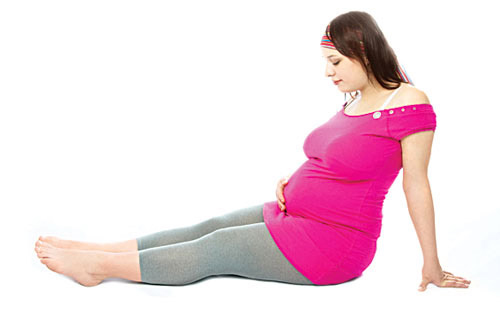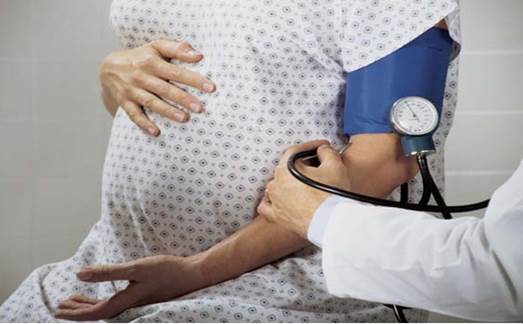What problems remain in the gestation you
can have? Let’s follow in this final part!
Edema (swelling)
Level of swelling of every pregnant woman
is different in pregnancy. Commonly, the parts of the body swelled are ankles,
feet, fingers, wrists and face. This symptom is popular in the final months of
gestation and becomes heavier when it’s hot, the end of day or you are
redundant in weight.
Swelling in pregnancy will completely end
after you give a birth.

Edema
is a popular disease in gestation.
Can
we prevent edema in pregnancy?
This symptom can be prevented by taking
exercises softly for blood circulation. Wearing shoes with flat soles and
sitting with legs put in high position also help relieve this symptom.
Moreover, pregnant women should usually massage legs and spin ankle softly, but
don’t stand rooted to the spot.
Whether
this disease is dangerous or not?
If symptom often shows up on legs, arms and
face, you need consult your doctors directly to eliminate the risk of catching
other dangerous diseases like preeclampsia.
Recommendation
An increase in quantity of parsley, garlic
and onion on daily diet can relieve swelling symptom in pregnancy.
Preeclampsia and high blood pressure
Your blood pressure is monitored in
pregnancy because it is an important index during nine months. High blood
pressure is often expression of stress or excessive worry, however, in some
cases, it is sign of preeclampsia. Thus, we should closely monitor blood
pressure in gestation because the signs of preeclampsia don’t usually express
clearly in the beginning of the gestation period.

Your
blood pressure is monitored in pregnancy because it is an important index
during nine months
Symptoms
Protein in urine
Fingers, legs and ankles swell up
Headache
Optic disorder
Pain under the right rib
Can
preeclampsia be treated?
When catching this disease, you need to be
kept a close watch carefully. You should spend much time relaxing and be in
hospital in order to be taken care of by doctors. This disease often begins in
the final month of the gestation. In many cases, obstetrician forces to induce
a pregnant woman to protect the health of mom and baby from unexpected
side-effects.
After childbirth, your blood pressure will
be stable again and other symptoms will also disappear.
Is
this disease risky?
This is considered as a dangerous disease
in the gestation period. If not to be controlled closely, the disease can cause
death (because it has negative impact on heart, kidneys as well as function of
placenta).
Thrush
Thrush is a common disease in the gestation
period. It has no clear symptoms but patient is able to feel itchy around
vagina. Besides, vulva and vagina are red, painful, swelled, and appear a
little of milky scab. When being caught this disease, vulva and vagina usually
smell nasty.
How
to deal with this disease?
Pregnant women need to reduce sweet food
and starch.
Eat a lot of fresh fruits, vegetables and
pasteurized yoghurt.
Drink much water and many kinds of herbal
tea.
Wear comfortable underwear made of cotton.
Wash clothes with soap which contains a
little or no detergent.
Clean and dry vulva after urinating or having
sex
Use condom during sex.
Avoid using soap or washing liquid which
smell strong in the tub.

Taking
regularly exercises helps reduce many diseases in pregnancy.
Varicose veins
Varicose veins often show up on legs,
sometimes around vulva of pregnant woman. It becomes heavier in the final of
the gestation and disappears after childbirth.
How
to limit the risk of catching this disease?
Pregnant women exercise regularly,
especially walking because this sport is softly, good for calves’ muscles and
blood circulation.
Put your feet on higher position whenever
you can.
Do not stand at one position for a long
time.
Avoid crossing your legs while sitting and
let your body relax often on sofa.
Massage your feet and ankles many times per
day.
Do not wear too tight clothes.
Put your legs on high a bit while sleeping.
Eat lots of garlics to circle blood better.
When taking a bath, you should drop a
little of lemon juice into warm water to abate this symptom.
Is
this in danger?
You need to inform your doctor and to be
checked regularly to know whether you catch varicose veins or not, and avoid
the risk of worse disease. In some cases, varicose will lead to create
extremely dangerous thrombosis. If your legs become hot, red and panic, you
have to notice your doctor immediately.